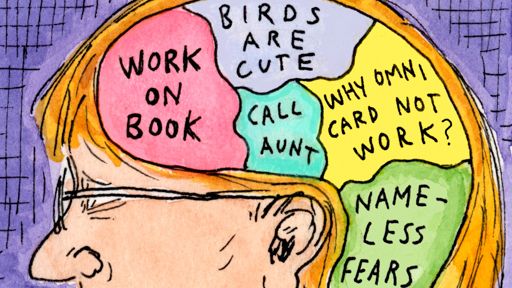Money is more than just numbers in a bank account; it’s a reflection of our beliefs, experiences, and emotions. Our mindset towards money significantly influences how we earn, save, spend, and invest. Understanding the psychology behind our financial decisions can pave the way to greater financial success and well-being.
The Psychology of Money: How Your Mindset Affects Your Financial Decisions

The Influence of Mindset on Financial Behavior
It’s often thought that wealth accumulation is solely about income and smart investment choices. However, financial success is deeply rooted in behavior and mindset rather than just intelligence or earnings. According to insights from Morgan Housel’s book, The Psychology of Money, the way we think about money can have a more profound impact than the amount we earn.
Two individuals with similar incomes can have vastly different financial outcomes due to their distinct attitudes towards money. One might save diligently and invest wisely, while the other spends impulsively, leading to financial stress. This disparity underscores the importance of cultivating a healthy money mindset.
Scarcity vs. Abundance Mindsets
Our perceptions of money often fall into two categories: scarcity and abundance.
Scarcity Mindset
A scarcity mindset is characterized by the fear of not having enough. Individuals with this mindset may focus excessively on conserving resources and may avoid taking financial risks. This can lead to missed opportunities and a reluctance to invest in long-term growth. They might be prone to impulsive spending as a way to cope with financial anxiety, ironically exacerbating their financial instability.
Abundance Mindset
In contrast, an abundance mindset embraces the belief that there are ample opportunities for financial growth. Those who adopt this perspective are more likely to engage in long-term planning and take calculated risks that can lead to prosperity. They see money as a tool to achieve their goals rather than an end in itself.
Emotional Influences on Financial Decisions
Emotions play a pivotal role in how we handle money. Feelings such as fear, stress, and even happiness can lead to irrational financial choices.
Emotional Spending
Many people use spending as a mechanism to manage their emotions. This emotional spending often results in purchases that provide temporary satisfaction but do not contribute to long-term well-being. Recognizing emotional triggers is essential to develop healthier spending habits.
Fear of Missing Out (FOMO)
The fear of missing out can drive individuals to make hasty investment decisions without adequate research, leading to potential losses. It’s important to remain objective and informed rather than letting emotions dictate financial choices.
The Role of Financial Education
A lack of financial literacy is a significant barrier to financial success. Understanding basic financial principles is crucial for making informed decisions. Financial education should go beyond budgeting to include insights into the psychological factors that influence spending and saving behaviors.
Continuous Learning
Engaging with financial resources, attending workshops, or seeking advice from financial advisors can enhance one’s knowledge. As Max Whör, Co-Founder of FINN, suggests, a strong foundation in financial education helps individuals overcome psychological barriers and make better decisions.
Developing Positive Financial Habits
Establishing good financial habits is essential for long-term success.
Budgeting and Saving
Creating a budget helps track expenses and identify areas to cut back. Prioritizing savings, even in small amounts, can accumulate over time and provide a safety net for the future.
Setting Clear Financial Goals
Having specific, achievable goals keeps you focused and motivated. Whether it’s saving for a home, retirement, or a dream vacation, clear objectives help guide financial decisions.
Mindful Spending
Being conscious of spending habits prevents impulsive purchases. Before making a significant purchase, it’s helpful to pause and consider whether it aligns with your financial goals.
Overcoming Cognitive Biases
Our brains are wired to take mental shortcuts, known as cognitive biases, which can lead to poor financial decisions.
Anchoring Bias
This occurs when individuals rely too heavily on the first piece of information they encounter. For example, seeing an initial high price can make subsequent prices seem more reasonable, leading to unnecessary spending.
Confirmation Bias
People tend to favor information that confirms their existing beliefs. This can result in ignoring crucial data that contradicts preconceived notions, affecting investment choices.
Recognizing these biases can help in making more rational financial decisions.
The Impact of Early Experiences and Societal Norms
Our attitudes toward money are often shaped by early life experiences and cultural influences. Family beliefs about wealth, societal expectations, and personal experiences with financial success or hardship play a role in developing our money scripts.
Money Scripts
These are the unconscious beliefs we hold about money, which influence our financial behaviors. Identifying and challenging negative money scripts can lead to healthier financial habits.
Strategies to Cultivate a Healthy Money Mindset
- Self-Reflection: Assess your beliefs about money and identify any negative patterns.
- Education: Increase your financial literacy through books, courses, or financial advisors.
- Set Realistic Goals: Define clear, attainable financial objectives.
- Practice Gratitude: Focus on what you have rather than what you lack to foster an abundance mindset.
- Seek Professional Help: A financial planner or therapist can provide guidance tailored to your situation.
By implementing these strategies, you can transform your relationship with money and navigate financial decisions with confidence.
Conclusion
Understanding the psychology of money is crucial for financial well-being. Our mindset affects every aspect of our financial lives, from daily spending habits to long-term investment strategies. By cultivating a positive money mindset, increasing financial literacy, and being mindful of emotional and cognitive influences, we can make better financial decisions and achieve our financial goals.
Ready to take control of your financial future? Consider exploring resources like Rich Dad Poor Dad by Robert Kiyosaki to deepen your understanding of financial literacy and mindset.











